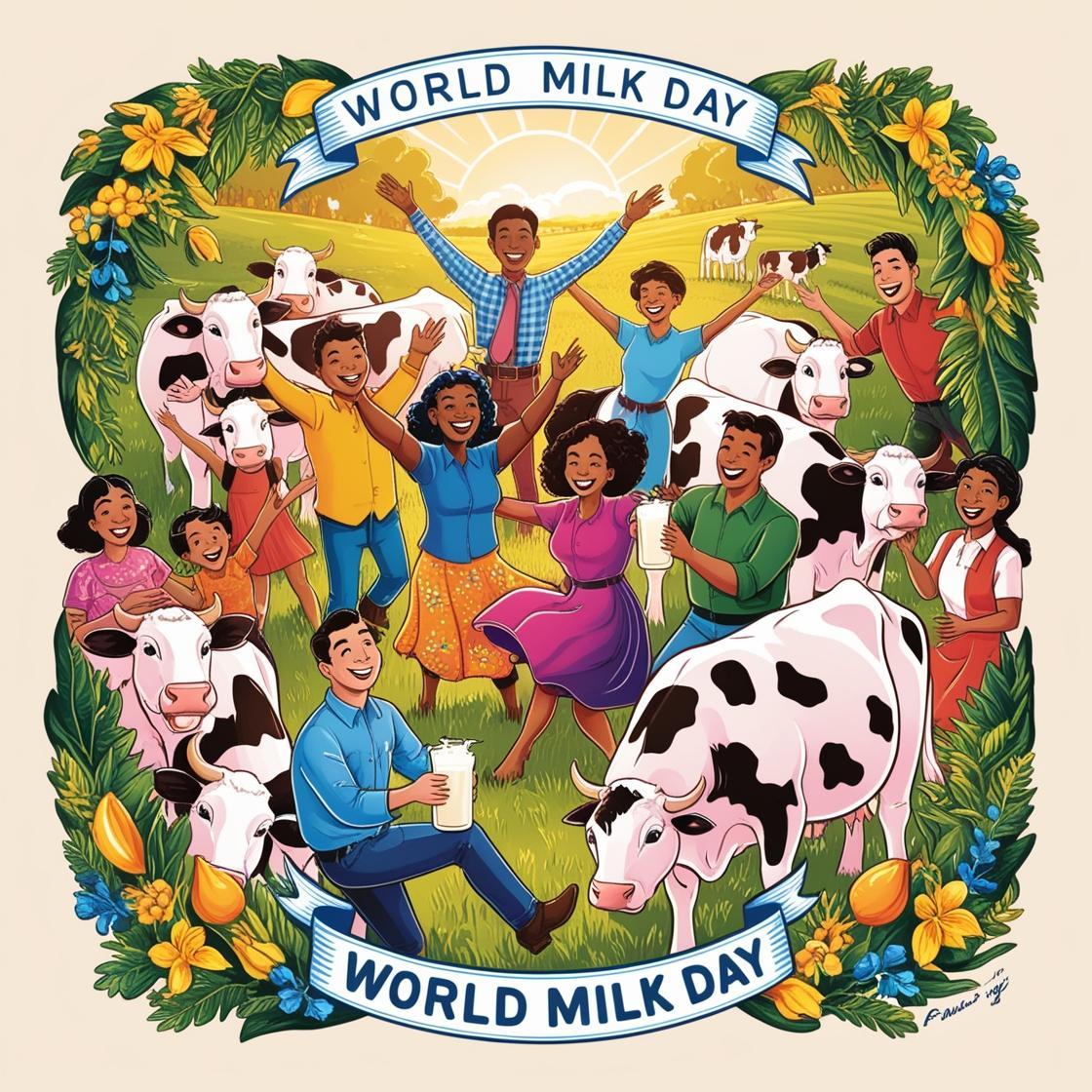World Milk Day: A Global Celebration of Nutrition, Sustainability, and Economic Impact
World Milk Day, observed every year on June 1, was introduced by the Food and Agriculture Organization (FAO) of the United Nations in 2001 to recognize milk’s invaluable contributions to health, nutrition, and economic growth worldwide. Milk has long been considered a “complete” food, offering an easily accessible source of high-quality protein, calcium, and essential vitamins, making it fundamental to balanced diets in cultures worldwide. The day celebrates milk’s place in daily nutrition and acknowledges the cultural and culinary significance of dairy in traditional diets globally. It highlights not only milk itself but also the dairy products it produces, like yogurt, cheese, butter, and kefir, which are often celebrated for their taste and health benefits.
World Milk Day is also a time to explore how the dairy industry is addressing sustainability. Dairy farming contributes to greenhouse gas emissions, water usage, and land management challenges. However, the industry has also made strides in adopting sustainable farming practices, including innovations in feed that reduce methane emissions, recycling water on farms, and waste management systems that minimize the environmental footprint. As a result, dairy farmers worldwide are working toward practices that meet high standards for environmental responsibility while continuing to provide essential dairy products.
Around the world, communities celebrate World Milk Day with farm tours, dairy product tastings, milk drives, and social media campaigns aimed at educating people on milk’s role in our diets and the journey milk makes from farm to table. Additionally, this day is an opportunity for governments, organizations, and communities to emphasize policies that support sustainable dairy farming practices, improve access to dairy nutrition, and ensure fair wages for farmers.

